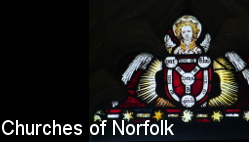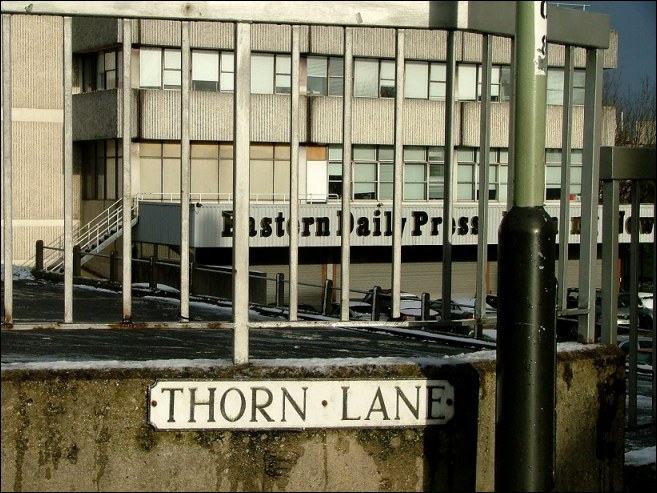| |
|
St
Michael at Thorn, Norwich
| The urban character of
modern Norwich is most marked to the north and
south of the commercial centre. Take, for
example, the site of St Michael. This was a large
church, a landmark near to the top of Ber Street,
with a slim, elegant tower, the top rebuilt in
the 1880s after being found to be unsafe. As is
common in Norwich, the rest was largely the
result of a 15th century rebuild, but St
Michael's great antiquity was given away by a
large Norman south doorway, the best of its kind
in the city, apart from the cathedral and castle
of course. George Plunkett's photographs of the
interior show that it was largely 19th century. |
|
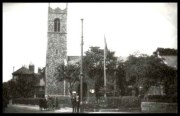 |
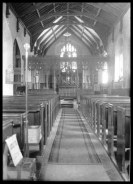 |
|
St Michael at Thorn was
the most central of the Norwich churches to be
lost in the blitz of January 1942; it sat on Ber
Street about 200 metres south of St John
Timberhill, although if you visit the site today
you might not think yourself so close to the
centre. Coming out onto All Saints Plain with its
department stores and shops is a little like
stepping from behind a film set. Here, behind the
monolith of the EDP building, are small scale
commercial and industrial premises, and a grand
view across King Street and the river valley to
Thorpe beyond. This part of the city has not
benefited from its postwar planning, but King
Street is now being cared for, so perhaps the
same will one day happen to Ber Street as well. Given that
St Michael was still in use up into the 1940s, it
is notable that absolutely no trace of it remains
today - except for one major feature that I will
come to in a moment.
|
| The
bombs left the tower standing, removing only a
part of the parapet and the spirelets, but the
church itself was gutted, leaving the eastern
gable and the other walls at a lower level. I
have been told that by the time the war ended,
the thorn bushes that gave the graveyard its
character and the church its name had regrown
through the rubble. When Cautley came this way in
the late 1940s he found them rapidly overtaking
the ruin. There was no way that St Michael was
going to be rebuilt; as with St Paul, it was too
close to other working churches to be needed, and
was set in an area zoned for industry and
commercial development. However, as at St Paul
the tower could have been kept as a landmark. As
it was, the site was completely erased, ruins,
tower, thorn trees and everything, and now forms
a car park for Archant House, the Eastern Daily
Press building.
|
|
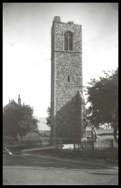 |
|
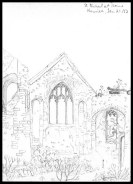 |
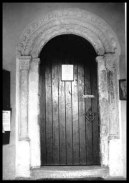 |
|
The only survival is the
Norman south doorway. Still standing after the
bombers had moved on, it was taken down after the
war and rebuilt in the church of St Julian, now
forming an inner doorway to Mother Julian's cell.
It gives an idea of the ferocity of
the blitz, as well as of the completeness of
post-war Norwich planning, when I tell you that
the two images below were taken from exactly the
same spot. Robert Ladbrooke made his leisurely
sketch in the 1820s. Some 180 years later, I
risked my life and limbs to stand in the middle
of Ber Street to take the same view of the site
as it is today. I am obviously closer in time to
the destruction of St Michael at Thorn than Mr
Ladbrooke, but not a single building in this
modern view, apart from perhaps those on the far
horizon, was here when the church was.
|
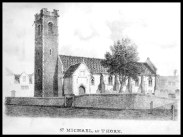 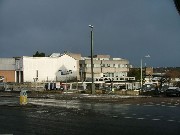
Simon Knott, December 2005
|
|
|
